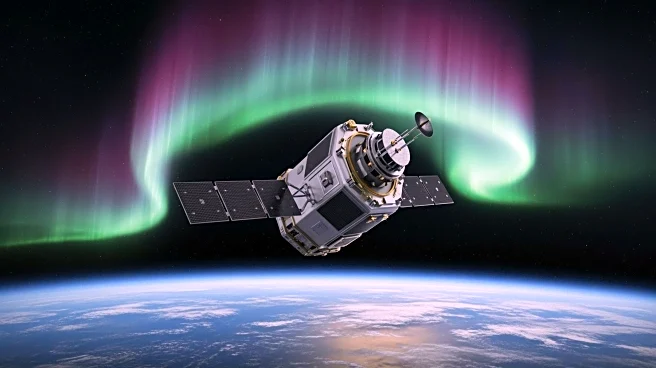What's Happening?
The Japanese Aerospace Exploration Agency (JAXA) has launched three cubesats from the Kibo module of the International Space Station (ISS). These cubesats, named YOTSUBA-KULOVER, e-kagaku-1, and BOTAN,
are designed to study auroral activity and space weather. Developed by various Japanese institutions, these compact satellites aim to enhance understanding of space phenomena such as volcanic pumice and solar activity. The cubesat format, invented in 1999, allows for cost-effective and rapid deployment of satellites, making space research more accessible to universities and small organizations.
Why It's Important?
The deployment of these cubesats is significant as it represents a shift towards more accessible and affordable space research. By focusing on auroral activity and space weather, these satellites could provide valuable data that enhances our understanding of Earth's atmospheric phenomena and their interactions with solar activity. This research could have implications for predicting space weather events that affect satellite operations and communications on Earth. Additionally, the success of these missions could encourage further international collaboration in space exploration and research.
What's Next?
The cubesats will continue to collect data on auroral activity and space weather, contributing to ongoing research in these areas. The findings could lead to advancements in predicting and mitigating the effects of space weather on Earth-based technologies. As the data is analyzed, it may also inform future satellite missions and the development of new technologies for space exploration. The success of these cubesats could inspire other countries to adopt similar approaches to space research, potentially leading to more collaborative international efforts.
Beyond the Headlines
The launch of these cubesats highlights the growing trend of using small, cost-effective satellites for scientific research. This approach democratizes access to space, allowing more institutions to participate in space exploration. The focus on auroral activity also underscores the importance of understanding Earth's interactions with solar phenomena, which can have wide-ranging effects on global communications and navigation systems. As space becomes more accessible, ethical considerations regarding satellite deployment and space debris management will become increasingly important.









